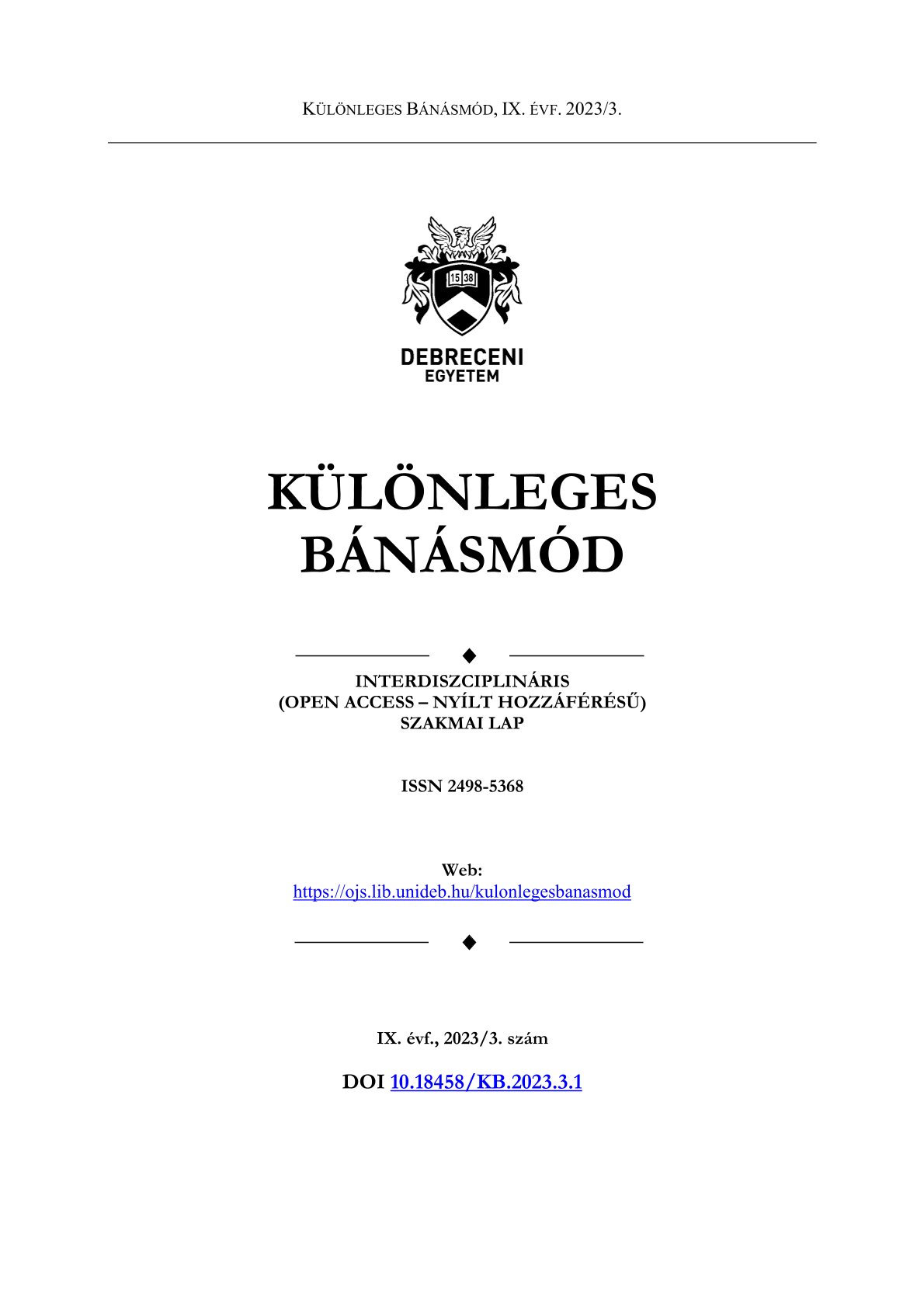KULTURÁLIS SOKSZÍNŰSÉG ÉS KISGYERMEKKORI NEVELÉS DUBAJBAN A REGGIO EMILIA MEGKÖZELÍTÉSÉBEN
Szerzők
Megtekintés
Kulcsszavak
Licenc
Copyright (c) 2023 Fatemeh Faroughi, Dr. Fekete-Dabney Ilona

This work is licensed under a Creative Commons Attribution-NonCommercial-NoDerivatives 4.0 International License.
Hogyan hivatkozzuk
Absztrakt
A „kultúra” kifejezés ugyan vitatott megnevezés és nincs egy mindenki által elfogadott jelentése, a társadalom minden aspektusban foglalkozik a kultúrával, legyen az mindennapi élet és a hozzá tartozó interakciók. Dilemmát jelent a kultúra és a társadalmi kulturális normák elfogadása és bemutatása legfőképpen olyan szociális környezetben, ahol multikulturalizmus van jelen, és, ahol ennek a hatása jobban is érezhető. Nemzetközi iskolákban, és főleg, olyan multikulturális társadalmi körökben mint az Egyesült Arab Emirátusok, ezek a kulturális változatosságok tisztán észrevehetőek. A világhírű és közismert Reggio Emilia szemlélet, ami sikert aratott számos nyugati országban, utat talált az Egyesült Arab Emirátusok kora gyermekkori intézményeiben is. Ez a tanulmány betekintést nyújt a Reggio Emilia megközelítés megvalósításába a multikulturális Egyesült Arab Emirátusokban, és egyidejűleg összehasonlítja azt Olaszországgal és más nyugati országgal. A cél az, hogy betekintést nyerjünk a Reggio Emilia szemlélet olyan fontos aspektusaira, mint például a tanárok mint kutatók, a gyerekek mint jogokkal rendelkező állampolgárok, a környezet jelentősége, a tananyag mint hosszútávú projekt, és végül a szülők mint partnerek az oktatásban. Továbbá, valóban jelen vannak-e a felsorolt jellemzők a Reggio Emilia óvodákban az Egyesült Arab Emirátusokban? Vagy azt kell feltételezzük, hogy a teljes és pontos implementációja nem lehetséges a Reggio képviselte szemléletnek az Egyesült Arab Emirátusok kulturális sokfélesége miatt, és az Egyesült Arab Emirátusok óvodáit csak inspirálta ez a megközelítés?
Hivatkozások
- Al-Darmaki, F. (2009). Counselling Challenges Within the Cultural Context of the United Arab Emirates. In M. A. Sayed (Ed.), International handbook of cross-cultural counselling: cultural assumptions and practices worldwide (465–474). essay, Sage Publications.
- Alhosani, N. (2022). The Influence of Culture on Early Childhood Education Curriculum in the UAE. ECNU Review of Education, 5, 284–298. DOI 10.1177/20965311221085984
- Alkaabi, M. (2022). The Prospects of Reggio Emilia in the UAE as an Investigative Study: the Effectivity of the Italian Curriculum's Reggio Emilia Approach inUAE's Public School (dissertation).
- Baker, F. (2015). Reflections on the Reggio Emilia Approach as Inspiration for Early Childhood Teacher Education in Abu Dhabi, UAE. Early Child Development and Care, 185, 982–995. DOI 10.1080/03004430.2014.974036
- Climate Change Knowledge Portal. (2021). Climate Change Knowledge Portal: For Development Practitioners and Policy Makers. Climate Change Knowledge Portal: for development practitioners and policymakers. Retrieved March 29, 2023, from www.climateknowledgeportan.worldbank.org/country/united-arab-emirates/climate-data-historical
- Gandhi, V. K. (2012). An Investigative Study into the Socialization and Learning of Children at a Preschool in Dubai, UAE, and the Parental Demographic Factors that may Contribute to it (dissertation).
- Gay, G. (2013). Teaching To and Through Cultural Diversity. Curriculum Inquiry, 43, 48–70.
- Hopkyns, S. (2020). The Impact of Global English on Cultural Identities in the United Arab Emirates, Wanted not Welcome. Routledge.
- Matsumoto, A. (2019). Literature Review on Education Reform in the UAE. International Journal of Reform, 28, 4–23. DOI 10.1177/1056787918824188
- New, R. (2007). Reggio Emilia as Cultural Activity Theory in Practice. Theory Into Practice, 46, 5–13.
- Spencer-Oatey, H. (2012). What is Culture? A compilation of Quotations. GlobalPAD Core Concepts.
- UAE Vision 2021. (2018). Cohesive Society and Preserved Identity. National Agenda 2021. https://www.vision2021.ae/en/national-agenda-2021
- Vargáné, Nagy A. (2018): A Reggio pedagógia sajátos szemlélete. [The Special Approach of Reggio Pedagogy] In: Vargáné, Nagy Anikó (szerk.) Családi nevelés 3. Debrecen, Didakt, 131-153.


 https://doi.org/10.18458/KB.2023.3.71
https://doi.org/10.18458/KB.2023.3.71